In this article, I’m tackling an age-old real estate belief that a fast sale = a good sale. To work out whether that’s true, I’ve analysed the most impressive sales in Wellington City over the past 12 months, to see if I could answer the following questions…
What goes into a great result?
Are there similarities among the best property sales that we can learn from?
Can we look at the data to find a set of rules that you should follow if you are thinking of placing your home on the market?
To investigate, I picked out the top 20 home sales (across all price ranges, not just the expensive ones) in Wellington from each month over the past year (March 2017 – Feb 2018) using REINZ stats.
How did I decide which were the top results? I chose to go with ‘sale price % over Rateable Value (RV)’.
While RV’s aren’t a perfect guide, this is probably the best way to analyse premium results across a range of different price levels.
How accurate are RV’s?
On an individual property basis, RV’s can be wildly inaccurate. However, once the data pool gets bigger, the relationship between RV and sale price becomes pretty darn consistent. Here is the median % over RV for all of Wellington City over the past 12 months (3,286 total sales).
The median result for non-apartment properties (house, townhouse or unit) is currently 44% above RV (Feb 2018).
Back to the top 20 from each month…
After taking out a few sections (which can skew the results if they have development potential), I ended up with the 233 most impressive sales across all price ranges over the past year. In other words, the top 7%. Here is what I learned:
The top sales were really, really good
The median result for the top 233 sales was 70% over RV.
Your home had to sell for at least 55 % over RV just to make it on the list.
What does that mean to the average homeowner? Well, the difference between 70% and 44% (the median Wellington % over RV) is a whopping 26%.
The median RV for properties sold in Feb 18 was $420k. So if you work out 26% of $420k, you get $109k.
In other words, getting your home into the top 7% of all sales could net you an extra $109k! Or possibly a whole lot more if your home is in a higher price bracket.
How do you reach the top 7%?
The margin for error when selling your home is huge. You really wouldn’t be wasting your time painting over that dark feature wall, de-cluttering, or cleaning like your mother-in-law is coming to visit before you go on the market.
Read: 5 things you must do before you sell.
In addition, choosing the right agent and the right process, as opposed to even just average ones, could improve your end result massively.
How else can you increase your chances of getting there?
Timing is everything
Every month in Wellington City, 5-10 properties are sold in 0-1 days. This usually comes about when an agent knocks on a homeowner’s door and says something like “I have a buyer looking for a home just like yours, Would you consider selling?”
Sometimes this works. Owners are attracted by what may appear to be an impressive offer and they are drawn to the idea of not having to go on the market publicly and not having to run open homes.
The problem? Not a single one of these sales made the top 233. In fact, only 16 of the top 233 sales were on the market less than 10 days.
This was the biggest takeaway from my research.
Most owners would naturally think a quick sale = a good sale. “Our home got snapped up so fast!”. In reality, this usually means you haven’t fully tested the market. You have to ask yourself – If your home attracted an offer without even going on the market, imagine what would happen if you actually took the time to advertise? Imagine how many potential buyers you might find if you had just 1 open home?
Achieving the best possible sale price isn’t the top priority for every owner and I understand that. For most Kiwi’s though, we have 90 – 100% of our total net worth tied up in our real estate assets so maximising value is pretty important, especially if you want to become mortgage free at some stage in your lifetime.
At the other end of the spectrum. Only 5 of the top 233 sales were on the market more than 90 days.
The median time on the market for the top 233 sales was 25 days. That’s the sweet spot. When the market has been tested and buyer competition is at its peak.
So what time of year is best?
The premium sales were spread evenly throughout the year (roughly 60 each season). Sounds straightforward, but on closer inspection, this actually tells us something interesting.
Winter produced only 21 % of the total sales for the year (since fewer people sell in Winter), but 24% of the top results. Meanwhile, Autumn included 31% of total sales for the year, but only 26% of the top results.
This means you could have a better chance of reaching the upper echelons of the top 7% if you sell your home in the quieter months when you’ll have less competition from other houses on the market.
Side note: Take agency figures with a grain of salt
When you interview salespeople to market your home, they may pull out figures showing their results vs. other companies. Disclaimer: I used to do this myself. The issue here is that when I looked at the best sales for each month, there were nearly always 1 or more data entry errors in the top 5 results. What is more telling is that the only type of error I found was an RV being recorded lower than it actually was. (eg. $200k instead of $650k). The only possible reason for this error would be that the agent or their office has entered the land value instead of the full rateable value (although this wasn’t the case most times), pure data entry error or possibly the agency is trying to make their sales look better than they potentially are.
Method marketing
52% of the premium sales were marketed by Tender / Auction. When you look at all sales in Wellington City, only 38% were marketed using one of these methods. There is power in choosing a date to work to. Like the trademe seller who doesn’t give away a ‘buy now’ price, you will probably do better if you stick to a date and let the process run its course.
In conclusion
While it may be tempting to skip the public marketing period, “Do I really have to have open homes?”. You could be costing yourself a massive amount of money if you don’t fully test the market.
Why not give every potential buyer the chance to fall in love with your home? What have you got to lose?

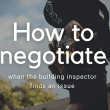


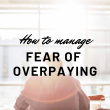
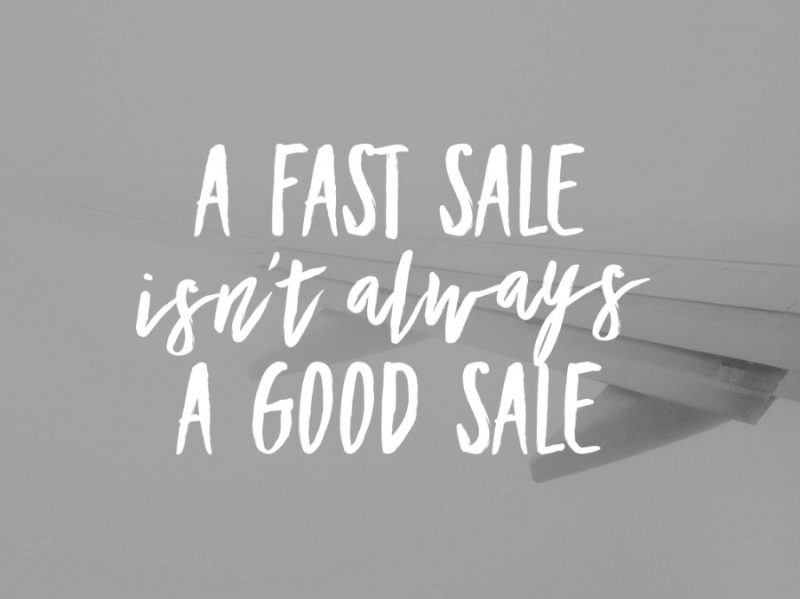
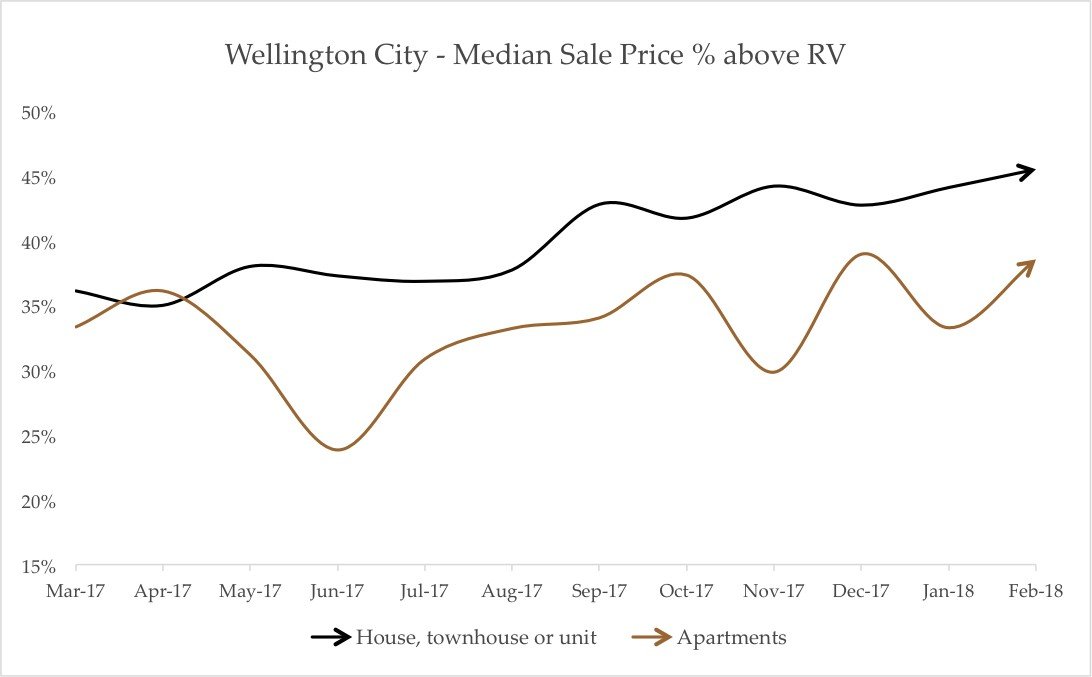
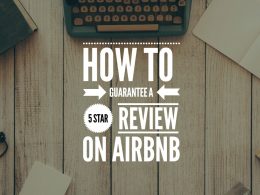
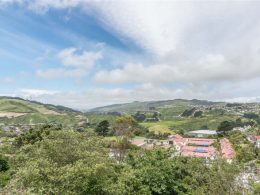
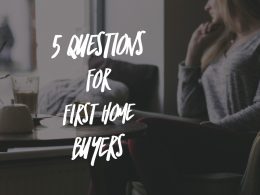

Quote; there were nearly always 1 or more data entry errors in the top 5 results. What is more telling is that the only error I ever found was an RV being recorded lower than it actually was.
Er, what? That does not make sense…always more than 1 data entry error but you only found 1?
That aside, over the years I have found that a large number of real estate salespeople (not agents that is legally the owner/s of the business) will lie, obfuscate and generally do or say anything to make a sale, and the quicker the better. Sell it for less than it could get and move on to the next sale because the extra work involved in getting another 10 or 20 grand just isn’t worth it for them. And they are up against everybody else in the office trying to sell it too. No wonder the new models of selling (think Tall Poppy as a classic example) are now cleaning up in the market. Flat fee for the house owner. No payments for the desk plus up to 50% of commission going to “the business” for the sales person.
Well spotted. What I meant to say was: “only type of error I found…” Thanks for the heads up. I have corrected the article.
It sure is an industry setting itself up for disruption.
Good article. But of course much of the variation in RV-sale price is due to the presentation, maintenance and renovations on the property – not just the quality of the agent.
Thanks for reading. That is fair comment and I should emphasize that in the article, will update.